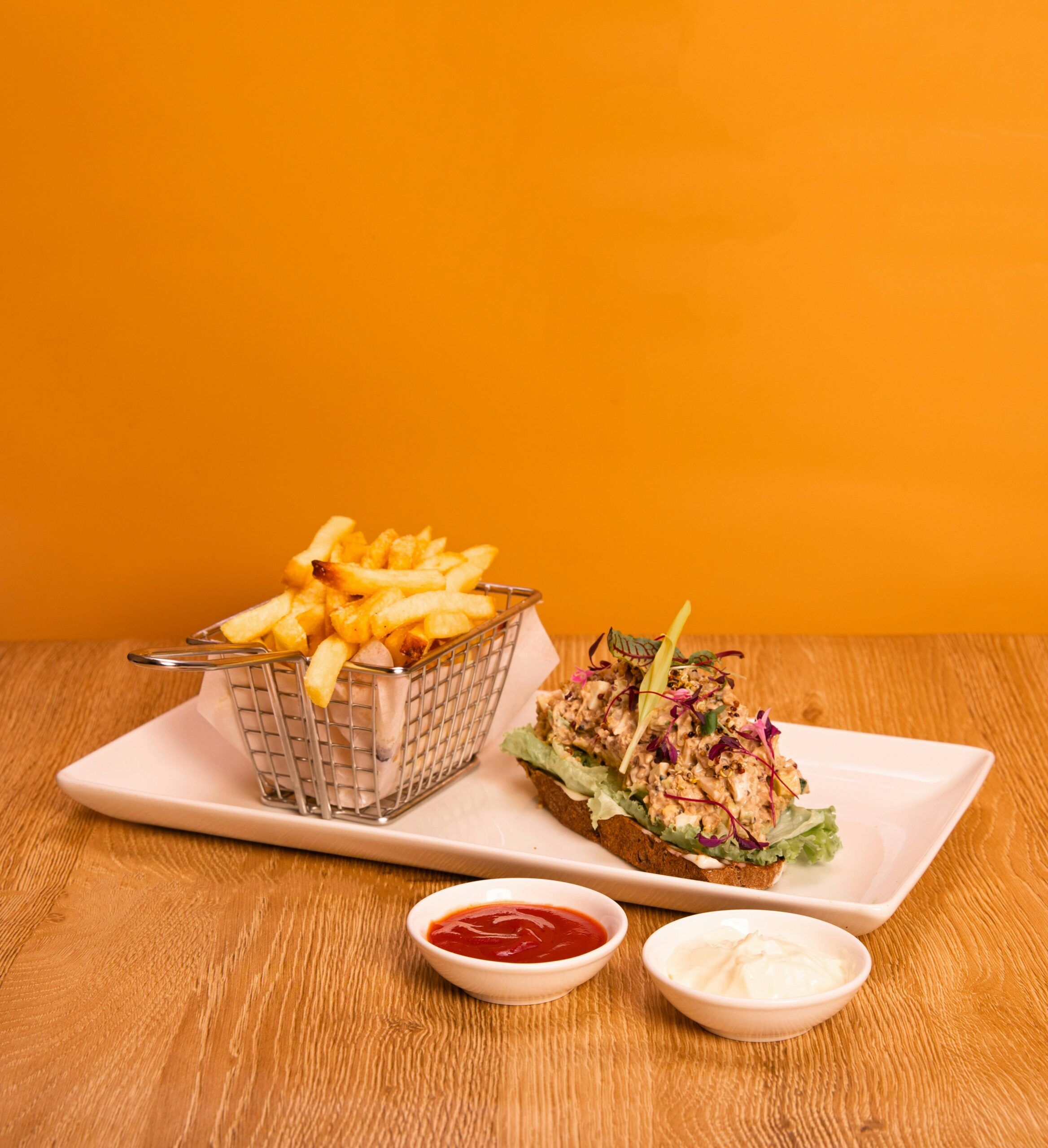- What is restaurant franchising, and how does it work?
- The pros of restaurant franchising
- The cons of restaurant franchising
- How to decide if restaurant franchising is right for you
Restaurateurs have long debated the pros and cons of restaurant franchising. On the one hand, a well-run food franchise can be a valuable business asset. On the other hand, several risks involved in franchising should not be overlooked.
Franchising can offer entrepreneurs an established brand and business model to help them get their new restaurant off the ground. But is this business model right for you? Is it worth the risk? Do the pros outweigh the cons?
This post will explore the pros and cons of restaurant franchising in detail. We hope restaurant franchise owners find it helpful!
What is restaurant franchising, and how does it work?
Franchising is a business model in which businesses (franchisors) grant other businesses (franchisees) the right to use their name, brand, and business model. Franchisees are typically required to pay an initial fee and ongoing royalties. In return, they receive support from the franchisor in the form of marketing materials, training, and equipment.
The right of franchisees to use the franchisor’s name, brand, and business method is typically protected by a contract. This contract often specifies strict guidelines for how the franchise must be operated.
If your restaurant meets the franchisor’s requirements, you can apply to become a franchisee. You will go through an application process that includes evaluating your business skills and finances.
The pros of restaurant franchising
There are several benefits to restaurant franchising, including access to an established brand, marketing materials, and support from the franchisor. Additionally, franchisees benefit from economies of scale in purchasing food and supplies and lower overhead costs due to buying power.
Some of the key restaurant franchise advantages include:
Access to marketing materials and support that can help you attract customers
This benefit is precious for a new restaurant owner who may not have the time or budget to invest in marketing. For example, many franchisors provide their franchisees with access to national advertising campaigns and promotional materials that will help you get the word out about your franchise restaurant.
The ability to operate a business with lower overhead costs due to the buying power of the franchisor
Franchisees often benefit from lower overhead costs due to the franchisor’s economies of scale in purchasing food and supplies. For example, a franchisor with multiple locations may get discounts from suppliers that individual restaurant owners would not be able to access on their own.
A proven business model that has been tested in the marketplace
One of the major benefits of franchising is that it gives you the ability to operate a business that has been proven to be successful in the marketplace. This can give you a significant advantage over starting a new restaurant from scratch. With a proven business model and support from the franchisor, you can avoid pitfalls that often plague new franchise restaurants.
The opportunity to become your own boss and run a successful business
For some people, the chance to become their own boss and run a successful business is one of the main attractions of restaurant franchising. As a franchisee, you have more control over your work life than if you were working for someone else. Additionally, by taking on this role as an entrepreneur, you may achieve a level of success that would not be possible as an employee.
Lower risk of failure due to the established brand, marketing materials, and training provided by the franchisor
One of the biggest benefits of restaurant franchising is reducing your risk of failure. Since you are using an established brand and business model, you will have access to all of the resources needed to make your business successful as long as you maintain high standards and follow the rules in your contract with the franchisor.
Lower startup costs due to less initial investment needed to launch and operate a franchise business
Another benefit of restaurant franchising is that it can require less initial investment than starting a new restaurant. This is because you will not need to invest in creating a brand, developing marketing materials, or purchasing equipment. And in some cases, the franchisor may even provide you with a lease for an already up and running location.
Support from the franchisor in the form of training and guidance
Of course, one of the biggest benefits of restaurant franchising is that you will have access to support and guidance from the franchisor. This can be extremely helpful if you are new to the industry or unsure how to operate a particular type of restaurant.
Franchisors typically provide their franchisees with training on everything from food preparation to marketing and customer service. Additionally, they may have an online portal that can give you access to manuals, videos, marketing materials, and other resources that will help you successfully run your business.
For maximizing your franchising profit with Orders.co super solutions, you can lower your marketing, advertising, and other associated costs. If you want to learn more about how to make your franchising business more profitable, contact Orders.co today!
Your Inbox, Your Rules!
Tailor your newsletter with the topics you're most interested in.
The cons of restaurant franchising
As for everything, there are also disadvantages to choosing restaurant franchising as a business model. Here are some of the main cons that you should take into consideration:
The limited control you have over the day-to-day operations of your business
One potential downside of restaurant franchising is that you will not have complete control over the day-to-day operations of your business. This is because you will be required to follow the franchisor’s rules and guidelines, including what menu items you can serve, how you can decorate your restaurant, and what promotions you can run.
The restrictions on setting your prices and hiring employees of your choosing
Another disadvantage of restaurant franchising is that you will be limited in the prices you can set for your menu items and the types of employees you can hire. This is typical because there are specific standards that the franchisor has established, and you must maintain these standards to uphold the image of the brand.
The royalty fees and other costs associated with being a franchisee
Of course, one of the most significant disadvantages of restaurant franchising is that it can be expensive. You will have to pay an initial franchise fee, but you will also be required to pay ongoing royalty fees. These fees can be a percentage of your sales or a flat price, which can quickly add up. Additionally, you will likely be responsible for the cost of marketing and advertising, which can also be significant.
Risk of losing your investment if the franchisor goes out of business
This is a major risk you are taking when opening a restaurant franchise. The franchisor is an independent business, and there is no guarantee that it will be successful in the long term. If they were to go out of business, you would most likely lose your investment and any fees that you have paid up until that point.
Difficulties with marketing and attracting customers
In addition to the costs associated with running a restaurant franchise, you may also face some challenges in marketing and attracting customers. This is because the brand will have already established itself as a successful operation, making it difficult for you to stand out in your local market. You may need to invest additional time and money into marketing and advertising to attract customers to your location.
How to decide if restaurant franchising is right for you
Now that you understand both the pros and cons of restaurant franchising, you can decide if it is a suitable business model. Consider your goals, budget, and risks before making a final decision.
If you decide to open a restaurant franchise, be sure to do your research and choose a franchisor with a proven track record of success who can provide you with the support, resources, and ongoing training that you need to be successful.
Ultimately, whether restaurant franchising is right for you will depend on your situation and goals. If you are looking for a relatively low-cost and low-risk way to start a restaurant business, it may be worth considering. But if you are looking for complete control over your business and want to avoid paying expensive fees and royalties, this may not be the right choice for you. Only you can decide what is best for your situation.
Here are some considerations to help you decide if restaurant franchising is right for you:
Your budget and risk tolerance
Restaurant franchising can be an expensive and risky proposition, so it is essential to consider your financial resources and risk tolerance before deciding whether or not to proceed with this business model.
Your goals
Do you want to run your restaurant and be in complete control of the business, or are you looking for a way to start a restaurant with minimal investment? Restaurant franchising can offer a mix of independence and support, but it is important to assess whether or not this business model fits your goals.
Your local market
If you choose to open a restaurant franchise, you will need to consider your area’s local market and competition. This may include investing time and money into marketing and advertising to attract customers to your location.
However, doing your research and choosing a reputable franchisor with a proven track record can help you increase your chances of success. We hope this information has been helpful as you consider whether restaurant franchising is right for you. Good luck!



